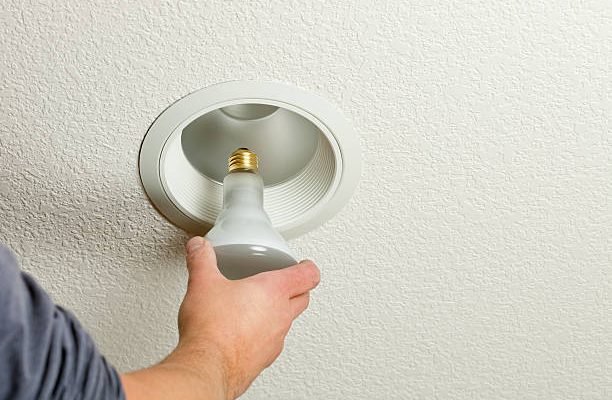Lights play a crucial role in our daily lives, providing illumination and enhancing the ambiance of our spaces. However, constantly replacing light bulbs can be expensive and inconvenient. By understanding the factors that affect the lifespan of lights and implementing certain strategies, you can significantly extend their longevity. In this article, we will explore various tips and techniques to make your lights last longer.
Importance of Light
2.1 Lighting in Everyday Life
Lighting is an essential aspect of our everyday lives. It allows us to see clearly, perform tasks efficiently, and create a comfortable atmosphere. From residential spaces to commercial establishments, proper lighting enhances our overall experience and productivity.
2.2 Cost of Frequent Light Replacement
Frequent light bulb replacements can quickly add up to significant costs. Not only do you have to purchase new bulbs regularly, but there are also additional expenses associated with the time and effort required to install them. By prolonging the lifespan of your lights, you can reduce these expenses and enjoy long-lasting illumination.
Factors Affecting Light Lifespan
3.1 Quality of Light Bulbs
The quality of light bulbs directly impacts their lifespan. Investing in high-quality bulbs from reputable manufacturers ensures better durability and performance. Look for bulbs with longer life ratings, such as LED (Light Emitting Diode) bulbs, which are known for their energy efficiency and extended lifespan compared to traditional incandescent bulbs.
3.2 Usage and Maintenance
The way lights are used and maintained also affects their lifespan. Here are some factors to consider:
- Avoid frequent switching: Frequent on-off cycles can reduce the lifespan of lights. Use lighting fixtures with motion sensors or timers to minimize unnecessary switching.
- Provide proper ventilation: Overheating can significantly reduce the lifespan of bulbs. Ensure that the fixtures have adequate ventilation to dissipate heat effectively.
- Keep lights clean: Dust and dirt accumulation can obstruct light output and cause bulbs to overheat. Regularly clean the light fixtures and bulbs using a soft, dry cloth.
- Handle with care: When replacing bulbs, handle them carefully to avoid damaging the filaments or other delicate components. Use gloves or a cloth to prevent skin oils from affecting the bulb’s surface.
Tips to Extend Light’s Lifespan
4.1 Choosing High-Quality Light Bulbs
Opting for high-quality light bulbs is the first step toward extending their lifespan. Consider the following tips when selecting bulbs:
- Select energy-efficient bulbs: LED bulbs consume less energy and have a longer lifespan compared to traditional incandescent or fluorescent bulbs. They are also available in various color temperatures and styles.
- Check life ratings: Look for bulbs with extended life ratings. The packaging or product specifications will provide information about the expected lifespan of the bulb.
4.2 Proper Usage and Maintenance Techniques
To ensure your lights last longer, follow these practices:
- Avoid excessive wattage: Using bulbs with a wattage higher than recommended can lead to overheating and reduced lifespan. Refer to the fixture or manufacturer’s guidelines for the appropriate wattage.
- Turn off when not needed: Switch off lights when not in use, especially in unoccupied areas. This reduces unnecessary wear and tear on the bulbs.
- Dim lights when possible: Dimming lights not only creates a cozy ambiance but also prolongs their lifespan. Install dimmer switches or use bulbs compatible with dimming features.
- Regularly inspect and clean: Perform routine inspections of light fixtures and clean them as necessary. Remove any dust, dirt, or debris that may accumulate on the bulbs or inside the fixtures.
Conclusion
By implementing these tips and techniques, you can effectively extend the lifespan of your lights. Choosing high-quality bulbs, practicing proper usage, and conducting regular maintenance will save you money and reduce the hassle of frequent replacements. Enjoy long-lasting illumination and a more sustainable lighting experience.
FAQs (Frequently Asked Questions)
Q1: How often do light bulbs need to be replaced?
Light bulb lifespan varies depending on the type and usage. Traditional incandescent bulbs typically last around 1,000 hours, while LED bulbs can last up to 25,000 hours or more.
Q2: Can using dimmer switches extend the lifespan of lights?
Yes, using dimmer switches can help extend the lifespan of lights. By reducing the wattage and intensity, you minimize the stress on the bulbs, allowing them to last longer.
Q3: Are LED bulbs more expensive than traditional incandescent bulbs?
LED bulbs are initially more expensive than traditional incandescent bulbs. However, they consume less energy and have a significantly longer lifespan, making them a cost-effective choice in the long run.
Q4: How can I clean my light fixtures safely?
To clean light fixtures, first, turn off the power and let the bulbs cool down. Then, use a soft, dry cloth or a duster to remove dust and debris from the fixture’s surface. Avoid using water or liquid cleaners, as they can damage the electrical components.
Q5: Are there any eco-friendly lighting options available?
Yes, there are eco-friendly lighting options available. LED bulbs are highly energy-efficient, produce less heat, and contain no hazardous materials like mercury, making them a greener choice for lighting needs.
Remember to consult the manufacturer’s guidelines and seek professional assistance if needed to ensure optimal lighting performance and safety.
In conclusion, by applying the tips mentioned in this article, you can significantly extend the lifespan of your lights while reducing costs and contributing to a more sustainable environment. Invest in high-quality bulbs, adopt energy-efficient practices, and prioritize proper maintenance for long-lasting and efficient lighting solutions.

